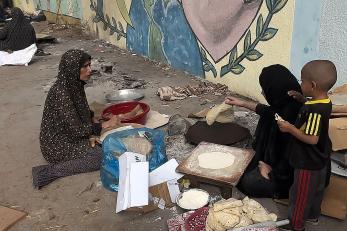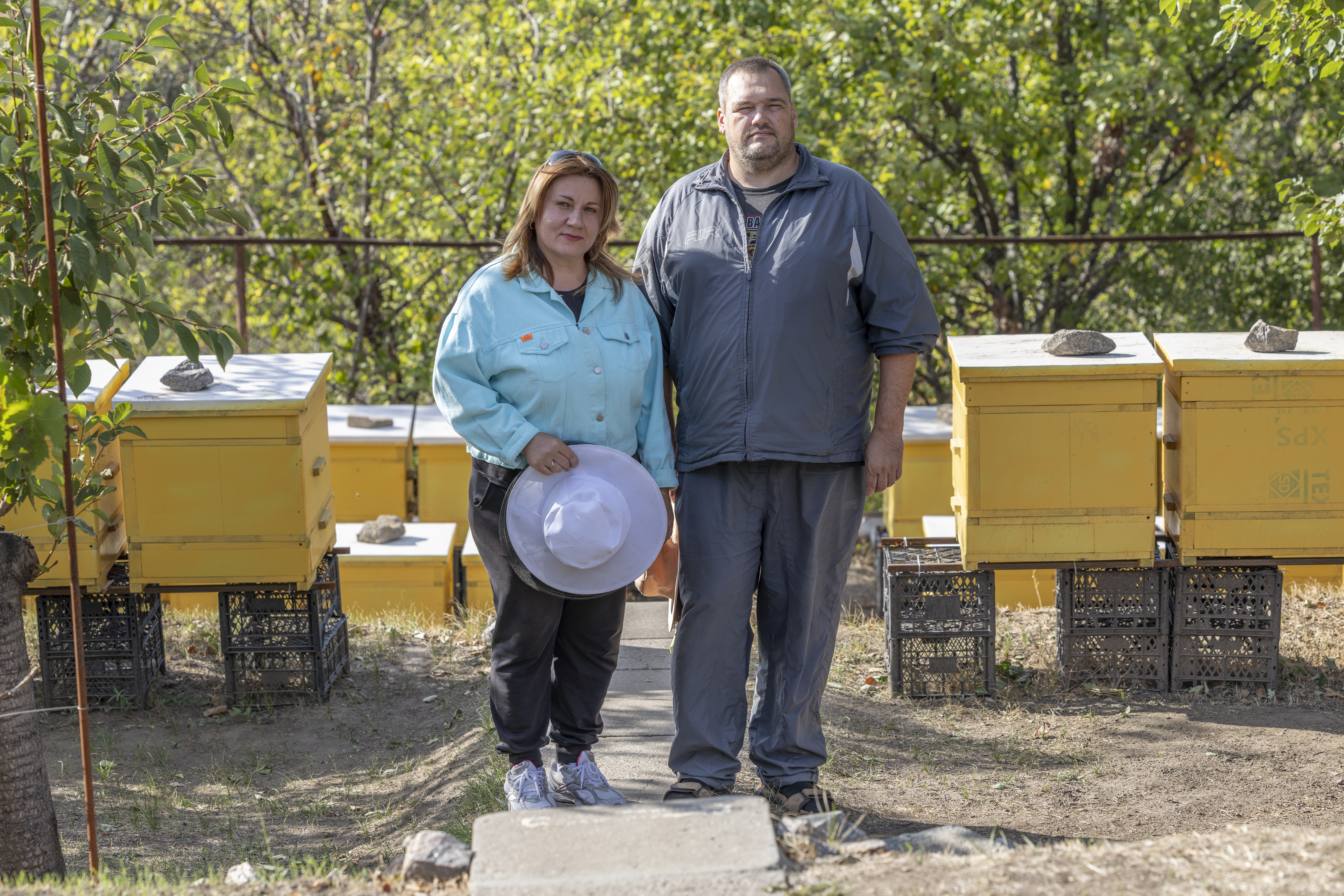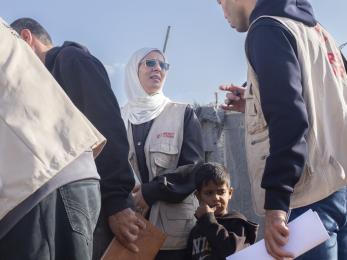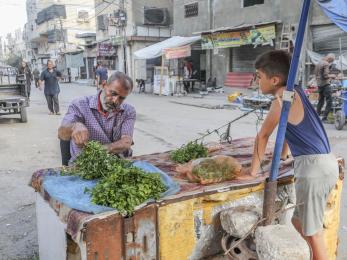Gaza is starving: Our team grapples with an escalating hunger crisis

For more than two months, vital aid has been blocked from entering Gaza. Now, a new report shows the food system has collapsed, pushing the entire population to the brink of famine.
The hunger crisis is affecting more than 2 million civilians and has reached horrific extremes—925,000 people are nearing starvation. Families are in pure survival mode—hungry, exhausted, and losing hope that an end to this conflict is possible.
Humanitarian operations have all but ground to a halt. Without immediate action to reopen crossings to reestablish access to food, fuel, healthcare, and medicine, the consequences for 2.3 million people in Gaza will be catastrophic.
Our team* in Gaza are grappling with the devastation of this crisis every day. They have shared their experiences struggling through the aid blockade and the realities of deepening hunger in Gaza.
*For the safety and security of our team, their image and likeness are not shown in the following photographs and videos, and all names have been changed.
Dying of hunger
“People are confused, anxious, and exhausted. They are literally dying of hunger. At this point, they would accept anything just to survive,” said Areej. “People are fainting in the streets. They look like skin and bones, pale and dizzy. If you saw them, you would break down and cry.”
“The only thing keeping people afloat is each other. They divide what little food they have, not to feel full, but simply to put something in their stomachs. I do not even know how we are still alive. And if we, who still have some form of income, can barely manage, imagine those who have nothing. Our salaries no longer cover anything. Prices are unimaginably high.”
The only thing keeping people afloat is each other.
Areej, Mercy Corps Team Member
“People will die slowly and painfully from hunger. Believe it or not, people no longer care about bombs, rockets, or even death. What consumes them now is food. How to find it. How to feed their children.”
No bread, only bombings
“It feels like death surrounds us from every direction,” said Nader. “If hunger doesn’t kill you, fear might. And if not fear, then heartbreak and despair will.”
“The occupation of the Morag region, which once supplied much of Gaza's produce, has drastically reduced the available farmland that feeds our local markets. It's not just the food that's becoming inaccessible; bakeries have shut down for over a month due to a complete lack of fuel. Gas, when available at all, is prohibitively expensive, with prices soaring from around $3 to $100 per kilo.”
If hunger doesn’t kill you, fear might.
Nader, Mercy Corps Team Member
“Above all this hardship, the shelling continues relentlessly. The bombardments are intense and terrifying. Just last night, a strike hit near our home. My daughter was so traumatised her heart nearly stopped from the shock.”
Families on the edge of starvation
“The situation is catastrophic,” said Saleem. “At this rate, it’s only a matter of days before we begin to hear about deaths from starvation.”
“Families are rationing bread to the extreme: each person gets one piece a day—they choose whether to eat it all at once or split it across three meals. Honestly, I don’t even know what else to say. No matter how much I describe it, the reality is worse. In short, this is the harshest phase of the war so far. And the hunger is only getting worse—more severe and more deadly with each passing day.”
Our commitment to delivering lifesaving aid in Gaza
Since the conflict began in Gaza, Mercy Corps and other aid groups have faced significant challenges to delivering support to communities. While starvation and deadly disease outbreaks are growing by the day, lifesaving aid is blocked by hostilities and restrictions. The severe cash shortage and exorbitant costs are also pushing any remaining humanitarian operations within Gaza toward a cliff.
Since October 2023, Mercy Corps has reached over 350,000 people with emergency items—food baskets, hygiene and shelter kits—and nearly 190,000 people with emergency cash assistance. Mercy Corps stands ready with trucks loaded just miles away, poised to deliver lifesaving assistance through humanitarian partners as soon as borders open. We won’t stop using our voice, experience, and partnerships to deliver relief in Gaza.


